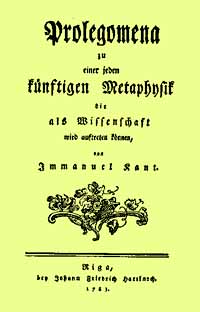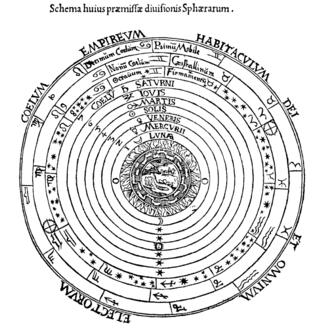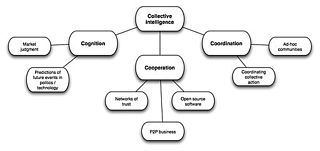
Francis Bacon, 1st Viscount St Alban PC, known as Lord Verulam between 1618 and 1621, was an English philosopher and statesman who served as Attorney General and Lord Chancellor of England under King James I. Bacon led the advancement of both natural philosophy and the scientific method, and his works remained influential even in the late stages of the Scientific Revolution.

The Baconian method is the investigative method developed by Francis Bacon, one of the founders of modern science, and thus a first formulation of a modern scientific method. The method was put forward in Bacon's book Novum Organum (1620), or 'New Method', and was supposed to replace the methods put forward in Aristotle's Organon. This method was influential upon the development of the scientific method in modern science; but also more generally in the early modern rejection of medieval Aristotelianism.

Meditations on First Philosophy, in which the existence of God and the immortality of the soul are demonstrated is a philosophical treatise by René Descartes first published in Latin in 1641. The French translation was published in 1647 as Méditations Métaphysiques. The title may contain a misreading by the printer, mistaking animae immortalitas for animae immaterialitas, as suspected by A. Baillet.

The Novum Organum, fully Novum Organum, sive Indicia Vera de Interpretatione Naturae or Instaurationis Magnae, Pars II, is a philosophical work by Francis Bacon, written in Latin and published in 1620. The title is a reference to Aristotle's work Organon, which was his treatise on logic and syllogism. In Novum Organum, Bacon details a new system of logic he believes to be superior to the old ways of syllogism. This is now known as the Baconian method.

A Treatise Concerning the Principles of Human Knowledge is a 1710 work, in English, by Irish Empiricist philosopher George Berkeley. This book largely seeks to refute the claims made by Berkeley's contemporary John Locke about the nature of human perception. Whilst, like all the Empiricist philosophers, both Locke and Berkeley agreed that we are having experiences, regardless of whether material objects exist, Berkeley sought to prove that the outside world is also composed solely of ideas. Berkeley did this by suggesting that "Ideas can only resemble Ideas" – the mental ideas that we possess can only resemble other ideas and thus the external world consists not of physical form, but rather of ideas. This world is given logic and regularity by some other force, which Berkeley concludes is God.

An Instance of the Fingerpost is a 1997 historical mystery novel by Iain Pears.

Prolegomena to Any Future Metaphysics That Will Be Able to Present Itself as a Science is a book by the German philosopher Immanuel Kant, published in 1783, two years after the first edition of his Critique of Pure Reason. One of Kant's shorter works, it contains a summary of the Critique‘s main conclusions, sometimes by arguments Kant had not used in the Critique. Kant characterizes his more accessible approach here as an "analytic" one, as opposed to the Critique‘s "synthetic" examination of successive faculties of the mind and their principles.
In statistics, latent variables are variables that can only be inferred indirectly through a mathematical model from other observable variables that can be directly observed or measured. Such latent variable models are used in many disciplines, including political science, demography, engineering, medicine, ecology, physics, machine learning/artificial intelligence, bioinformatics, chemometrics, natural language processing, management, psychology and the social sciences.

The phrase "scientia potentia est" is a Latin aphorism meaning "knowledge is power", commonly attributed to Sir Francis Bacon. The expression "ipsa scientia potestas est" occurs in Bacon's Meditationes Sacrae (1597). The exact phrase "scientia potentia est" was written for the first time in the 1668 version of Leviathan by Thomas Hobbes, who was a secretary to Bacon as a young man. The related phrase "sapientia est potentia" is often translated as "wisdom is power".

Nous, or Greek νοῦς, sometimes equated to intellect or intelligence, is a concept from classical philosophy for the faculty of the human mind necessary for understanding what is true or real.
Nature has two inter-related meanings in philosophy and natural philosophy. On the one hand, it means the set of all things which are natural, or subject to the normal working of the laws of nature. On the other hand, it means the essential properties and causes of individual things.

Common sense is sound, practical judgement concerning everyday matters, or a basic ability to perceive, understand, and judge in a manner that is shared by nearly all people.
Idola fori, sometimes translated as "Idols of the Market Place" or "Idols of the Forum", are a category of logical fallacy which results from the imperfect correspondences between the word definitions in human languages, and the real things in nature which these words represent. The term was coined in Latin by Sir Francis Bacon and used in his Novum Organum, one of the earliest treatises arguing the case for the logic and method of modern science.
Idola specus, normally translated as "Idols of the Cave", is a type of logical fallacy whereby the peculiar biases of individuals lead them to errors. This Latin term was coined by Sir Francis Bacon and used in his Novum Organum, one of the earliest treatises arguing the case for the logic and method of modern science. He described them as deriving from "the peculiar constitution, mental or bodily, of each individual; and also in education, habit, and accident".
Idola theatri is a type of tendency towards logical fallacy or error, normally translated as "idols of the theatre". The Latin was coined by Sir Francis Bacon in his Novum Organum—one of the earliest treatises arguing the case for the logic and method of modern science. Bacon described them as "Idols which have immigrated into men's minds from the various dogmas of philosophies, and also from wrong laws of demonstration." He named them Idols of the Theater "because in my judgment all the received systems are but so many stage plays, representing worlds of their own creation after an unreal and scenic fashion."
Francis Bacon, 1st Viscount St Alban, KC was an English philosopher, statesman, scientist, lawyer, jurist, author, and pioneer of the scientific method. He served both as Attorney General and Lord Chancellor of England. Although his political career ended in disgrace, he remained extremely influential through his works, especially as philosophical advocate and practitioner of the scientific method during the scientific revolution.
The Romantics, in seeking to understand nature in her living essence, studied the 'father of science', Sir Francis Bacon. The view of Bacon and the 'inductive method' that emerges is quite a different one from that tended to prevail both before and then after, here mainly due to John Stuart Mill's interpretation later in the 1800s. For the Romantics, induction as generally interpreted 'was not enough to produce correct understanding in Bacon's terms.' They saw another side of Bacon, generally not developed, one in which nature was a labyrinth not open to "excellence of wit" nor "chance experiments": "Our steps must be guided by a clue, and see what way from the first perception of the sense must be laid out upon a sure plan."
Romantic epistemology emerged from the Romantic challenge to both the static, materialist views of the Enlightenment (Hobbes) and the contrary idealist stream (Hume) when it came to studying life. Romanticism needed to develop a new theory of knowledge that went beyond the method of inertial science, derived from the study of inert nature, to encompass vital nature. Samuel Taylor Coleridge was at the core of the development of the new approach, both in terms of art and the 'science of knowledge' itself (epistemology). Coleridge's ideas regarding the philosophy of science involved Romantic science in general, but Romantic medicine in particular, as it was essentially a philosophy of the science(s) of life.
Unconscious inference, also referred to as unconscious conclusion, is a term of perceptual psychology coined in 1867 by the German physicist and polymath Hermann von Helmholtz to describe an involuntary, pre-rational and reflex-like mechanism which is part of the formation of visual impressions. While precursory notions have been identified in the writings of Thomas Hobbes, Robert Hooke, and Francis North as well as in Francis Bacon's Novum Organum, Helmholtz's theory was long ignored or even dismissed by philosophy and psychology. It has since received new attention from modern research, and the work of recent scholars has approached Helmholtz's view.
The Four Great Errors are four mistakes of human reason regarding causal relationships that the German philosopher Friedrich Nietzsche argues are the basis of all moral and religious propositions. Set forth in his book Twilight of the Idols, first published in 1889, these errors are key in implementing his program of the "revaluation of all values." Nietzsche wanted to liberate people from traditional moral and religious systems by denying the concept of "human accountability," which, he argues, is nothing more than an invention of theologians who wanted to exert power over other people. Unlike most religions and moral systems which hold that virtuous behavior results in happiness, Nietzsche argued the opposite. For Nietzsche, Internal psychological states that we cannot consciously control such as "happiness" are actually the true causes of virtuous behavior, not the human will.








